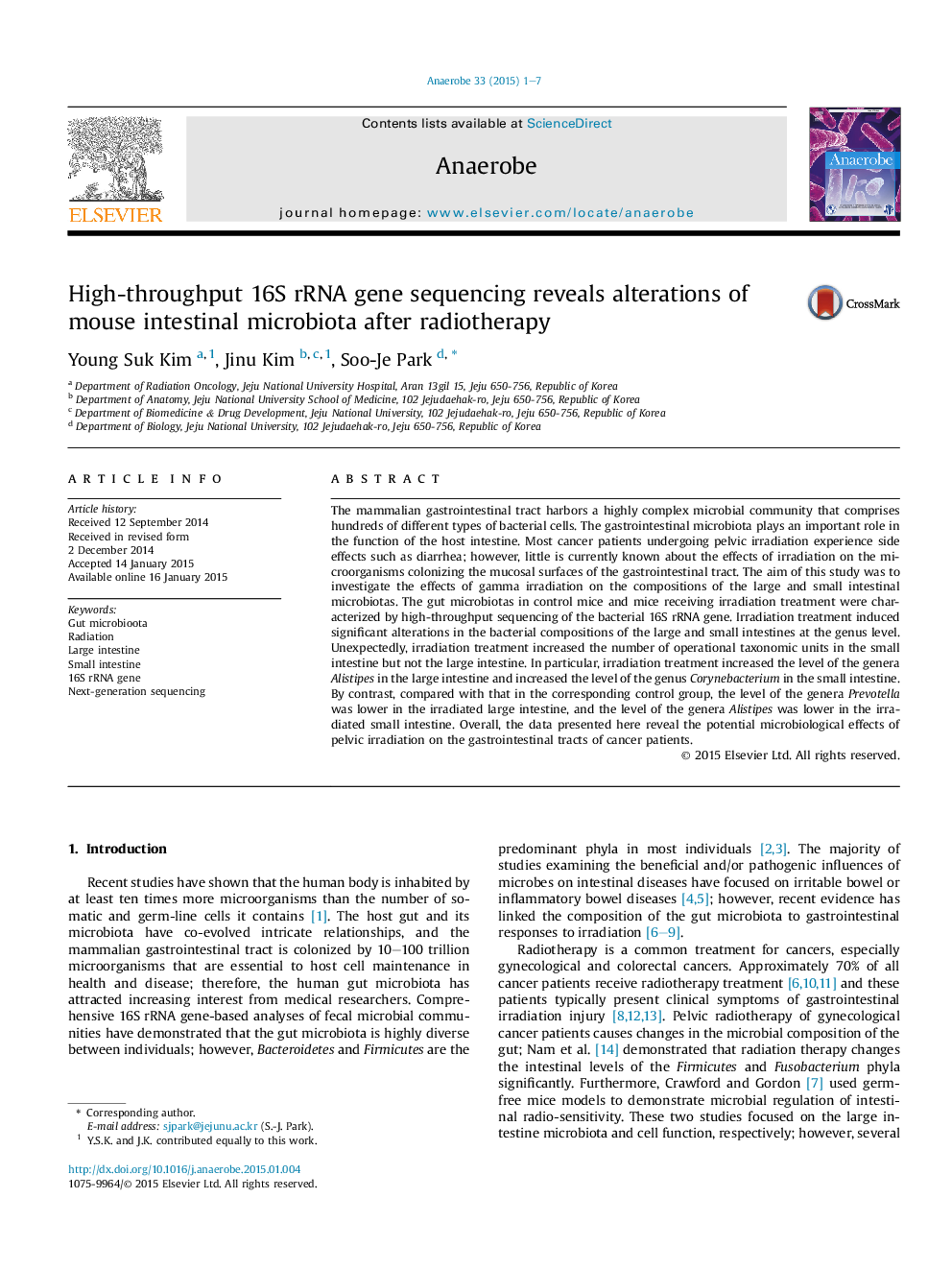| کد مقاله | کد نشریه | سال انتشار | مقاله انگلیسی | نسخه تمام متن |
|---|---|---|---|---|
| 3394898 | 1592830 | 2015 | 7 صفحه PDF | دانلود رایگان |

• The gut microbiota in mice receiving irradiation was characterized by high-throughput sequencing method using 16S rRNA gene.
• Gut microbial abundances showed that significant alterations in the both intestines affected by radiation.
• Alistipes and Mucisprillum might be associated with gamma irradiation exposure and host gut health.
The mammalian gastrointestinal tract harbors a highly complex microbial community that comprises hundreds of different types of bacterial cells. The gastrointestinal microbiota plays an important role in the function of the host intestine. Most cancer patients undergoing pelvic irradiation experience side effects such as diarrhea; however, little is currently known about the effects of irradiation on the microorganisms colonizing the mucosal surfaces of the gastrointestinal tract. The aim of this study was to investigate the effects of gamma irradiation on the compositions of the large and small intestinal microbiotas. The gut microbiotas in control mice and mice receiving irradiation treatment were characterized by high-throughput sequencing of the bacterial 16S rRNA gene. Irradiation treatment induced significant alterations in the bacterial compositions of the large and small intestines at the genus level. Unexpectedly, irradiation treatment increased the number of operational taxonomic units in the small intestine but not the large intestine. In particular, irradiation treatment increased the level of the genera Alistipes in the large intestine and increased the level of the genus Corynebacterium in the small intestine. By contrast, compared with that in the corresponding control group, the level of the genera Prevotella was lower in the irradiated large intestine, and the level of the genera Alistipes was lower in the irradiated small intestine. Overall, the data presented here reveal the potential microbiological effects of pelvic irradiation on the gastrointestinal tracts of cancer patients.
Journal: Anaerobe - Volume 33, June 2015, Pages 1–7